New Transport Secretary Heidi Alexander is being urged to mark the New Year by adopting a new vision for a Low Traffic Future, for the sake of the nation’s health, wealth and wellbeing.
As she prepares to draw up a new ‘vision-led’ Integrated National Transport Strategy for England, an alliance of health, environmental, road safety and sustainable transport groups believes that the vision guiding the strategy should be an ambition to halt and reverse the relentless growth of motor traffic. It should aim to create a future with safe and attractive streets and communities, in both urban and rural areas, with a range of good transport options to enable people to make day-to-day journeys without always needing to drive.

DfT projections for motor traffic growth in England & Wales
The distance covered annually by motor vehicles on Britain’s roads has almost doubled since 1980 and increased 10-fold since 1950, while bus use has been in long-term decline. Worse still, the Department for Transport (DfT) currently predicts further increases in motor traffic of up to 54% in England and Wales by 2060.
The Low Traffic Future alliance says that allowing this growth to continue would be hugely damaging to the economy, and indeed for our health and that of our streets, communities and the environment – even if they were all electric vehicles. Their joint campaign for a Low Traffic Vision, launched today, seeks to ensure that this does not happen.
Instead, they are urging Heidi Alexander to adopt an Integrated National Transport Strategy which provides real choices in how people make day-to-day journeys. They say it must:
- Reduce dependence on, and demand for, travel by cars, vans and lorries, to increase energy independence and reduce pollutant and greenhouse gas emissions.
- Set targets to increase the proportion of trips made by clean and healthy transport options – walking, wheeling and cycling, public, shared and community transport – making them the preferred options for as many journeys as possible.
- Integrate these options, not only with each other, but also with wider policy objectives: health, road safety and particularly planning and housing.
- Tackle the inequalities caused by our current car-dependent transport system. That means: (i) ensuring good transport services for rural and deprived areas; (ii) tackling the disproportionate impact of pollution and road danger on more deprived communities; (iii) making transport networks and services accessible to all; and (iv) boosting active travel among groups who are currently less likely to participate but who could most benefit from doing so (e.g. people with disabilities and health conditions).
- Rebalance both the funding and pricing of transport, to achieve all of the above. That means (i) shifting funding towards sustainable transport and maintaining our existing transport networks; and (ii) reducing the costs of using sustainable transport relative to those for private motor-vehicle use.
Chris Todd, Director of Transport Action Network, said:
“Labour has made a good start on bringing buses and train services under public control, which should result in better and more affordable services. Yet it also needs to be bolder in tackling our over-reliance on cars and trucks. Delivering a Low Traffic Vision by shifting funding from road schemes towards clean and healthy alternatives would be a much better way to grow the economy, improve opportunities, protect public health and achieve ‘net zero’.”
Michael Solomon Williams, Campaigns Manager at Campaign for Better Transport, said:
“Less traffic means safer, healthier streets, lower emissions, and smoother journeys for all. More and better public transport must be top priority for reducing traffic, while rail freight and sustainable local deliveries should take priority over HGVs and small vans. For this vision to be realised we need a properly integrated transport system, where sustainable modes are the affordable, practical choice for many more journeys.”
Izzy Romilly, Sustainable Transport Manager at Possible, said:
“Successive governments have failed to get a grip on the problem of ever-rising traffic levels across the country. We’ve poured billions into car dependency – like building new roads that just create more traffic – while public transport just isn’t good enough, and safe walking and cycling routes barely exist. This Labour government needs to make an explicit commitment to tackling traffic and car dependency, for our health, for the economy, and for the planet.”
Tanya Braun, Policy & Communications Director at Living Streets, said:
“We have become so used to prioritising cars, parked or moving, over people. But with a little imagination, it’s clear to see how reducing our reliance on vehicles would support the health, economy, and wellbeing of our communities. At Living Streets, we welcome the call for investment in clean and healthy transport options, so that people have a genuine choice about how to travel. A new Low Traffic Vision would help create safe, attractive streets where people can breathe clean air and discover the many benefits of walking and wheeling.”
Simon Munk, Head of Campaigns & Community Development at London Cycling Campaign, said:
“There’s much to learn from London’s leadership in tackling motor traffic, not least the importance of political bravery. Yet Transport for London has shown that, even in London, a majority of motor vehicle journeys could still fairly easily be made by other modes. We hope Heidi Alexander can now draw on her experiences in London, and deliver a bold integrated transport strategy to rapidly reduce private motor vehicle use wherever possible. That is what our future generations need.”
– ENDS –
Note to editors:
The Low Traffic Future alliance (see https://lowtrafficfuture.org.uk) brings together organisations and individuals united by a vision of a world with clean air, safe streets, vibrant communities, a stable climate and a healthy natural environment for future generations. Its member organisations include environmental, health, road safety and sustainable transport groups – see https://lowtrafficfuture.org.uk/members. It works to build public and political support locally and nationally for a future in which people have real choices about how to make their day-to-day journeys, without always depending on private motor vehicles.


